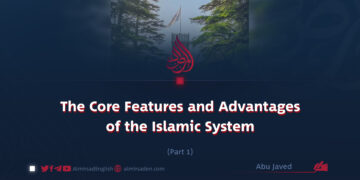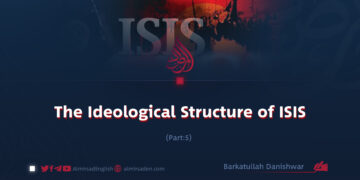Part 19
Author: Ehsan Arab
Forcing Islamic Countries into Dependency on Foreign Aid
In recent decades, the Islamic world has been plagued by continuous wars and crises—devastating conflicts that not only dismantled the security and stability of Muslim nations but also laid the groundwork for economic, political, and military subjugation to the West. These conflicts eroded the autonomy of Islamic states and rendered them increasingly reliant on external support.
Among the most dangerous and evident contributors to this devastation has been the Khawarij group—ISIS. Though outwardly claiming to arise from within the Muslim Ummah, ISIS, in reality, functioned as a calculated weapon wielded by Western powers to fuel destruction across the Islamic world. With its rise in Iraq, Syria, and beyond, ISIS unleashed a campaign of terror and violence so vast and brutal that many critical institutions in the Muslim world were reduced to rubble.
During this period, the group deliberately targeted essential infrastructure, including power grids, water supply systems, hospitals, schools, mosques, and irreplaceable historical sites. The scale and precision of this destruction were not accidental—it was systematic and orchestrated to bring Islamic nations to their knees.
This widespread ruin left many Muslim countries unable to sustain themselves. Stripped of internal resilience, they were ultimately forced to seek assistance from Western nations and international institutions—aid that was invariably tied to political conditions, economic pressure, and often punishing sanctions.
This devastation extended beyond physical destruction. It had profound psychological consequences. Peoples and societies that once aspired to independence, justice, and Islamic governance were now reduced to begging for food, healthcare, and financial aid from powers historically aligned against them. Survival became dependent on the very entities that had long undermined their sovereignty.
In the wake of this ruin, Islamic nations found themselves compelled to accept substantial loans from global institutions such as the International Monetary Fund (IMF) and the World Bank—entities historically aligned with colonial agendas and known for imposing harsh, sovereignty-eroding conditions.
The Dangerous Consequences of Western Dependency
Dependence on Western aid has had dire and long-lasting consequences for the Muslim world. Although such aid is often presented under the guise of humanitarian concern, in truth, it functions as a tool for extending political influence, imposing foreign cultural values, and stripping Islamic governments of their independence in decision-making.
This externally driven model of “assistance” has failed to resolve the core problems faced by Muslim societies. On the contrary, it has plunged them deeper into economic dependence, structural poverty, and perpetual instability. The following are some of the key negative consequences of this dependency:
1. Loss of Political Independence
Governments reliant on foreign aid are compelled to conform their domestic and foreign policies to the interests of Western powers, unable to act freely or in accordance with the will of their own people.
2. Erosion of Religious and Cultural Identity
Foreign dependency opens the door to ideological and cultural infiltration, exposing Islamic societies to values that dilute, distort, or directly contradict their religious and cultural foundations.
3. Expansion of Corruption and Puppet Regimes
States that lean on external powers often become detached from their own populations. Instead of representing the will of their people, they enforce the directives of foreign patrons, paving the way for widespread corruption and illegitimate rule.
4. Extinguishing the Spirit of Independence
A dependent society breeds a dependent mindset. The younger generation, rather than aspiring toward autonomy and self-reliance, becomes passive consumers and imitators of decadent and corrupt foreign cultures.
Conclusion
The Khawarij group, known as ISIS, does not represent Islam. It is, in fact, a manufactured project—a false front constructed to weaken the Islamic world from within. Through the destruction of Muslim nations, the instigation of internal wars, and the facilitation of deeper foreign intervention, ISIS has served as a brutal instrument in the hands of global powers seeking to keep the Islamic Ummah fractured, dependent, and subdued. It is imperative for the Muslim world to recognize this threat for what it truly is and to strive for unity, resilience, and self-sufficiency rooted in Islamic principles.



















































